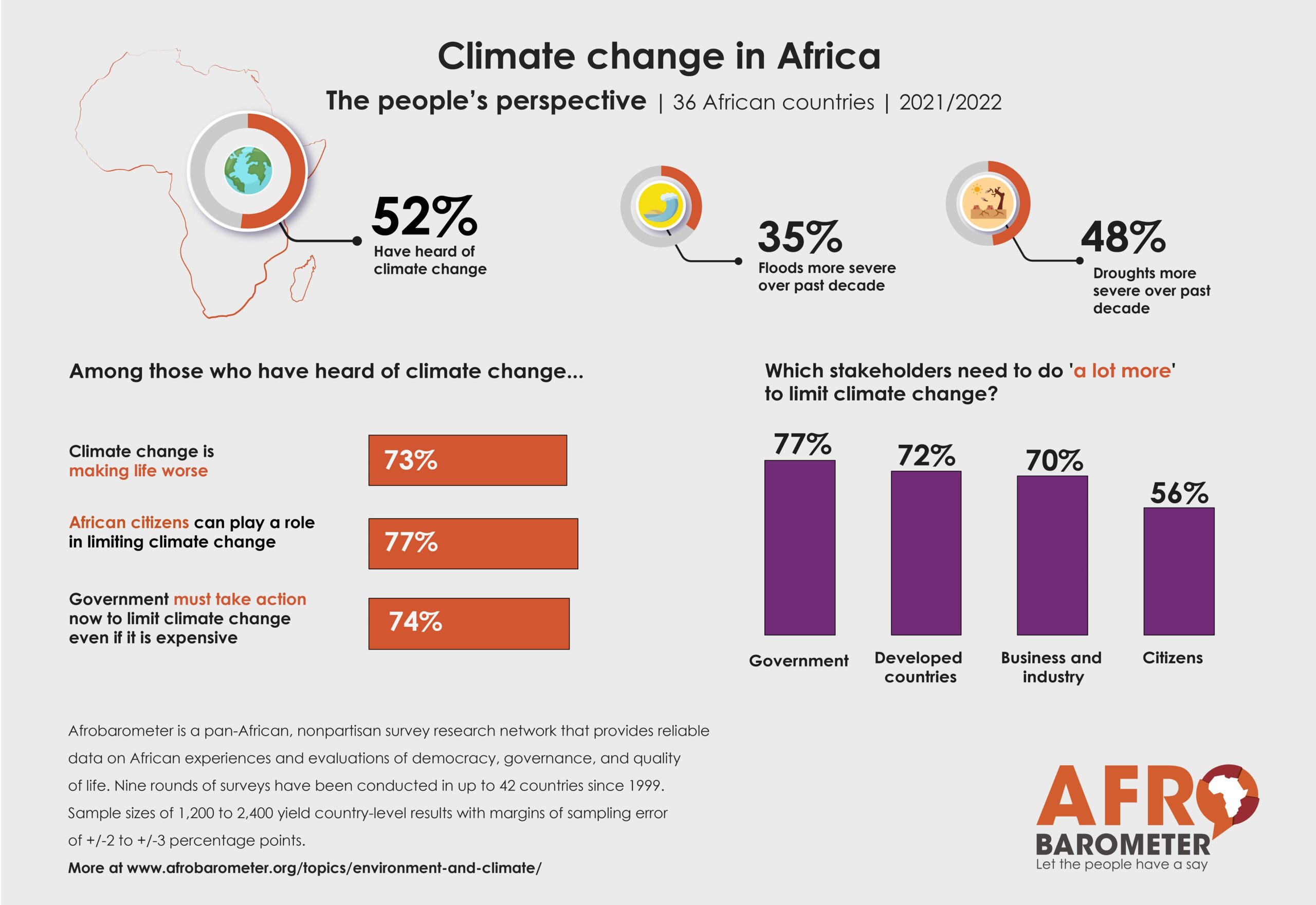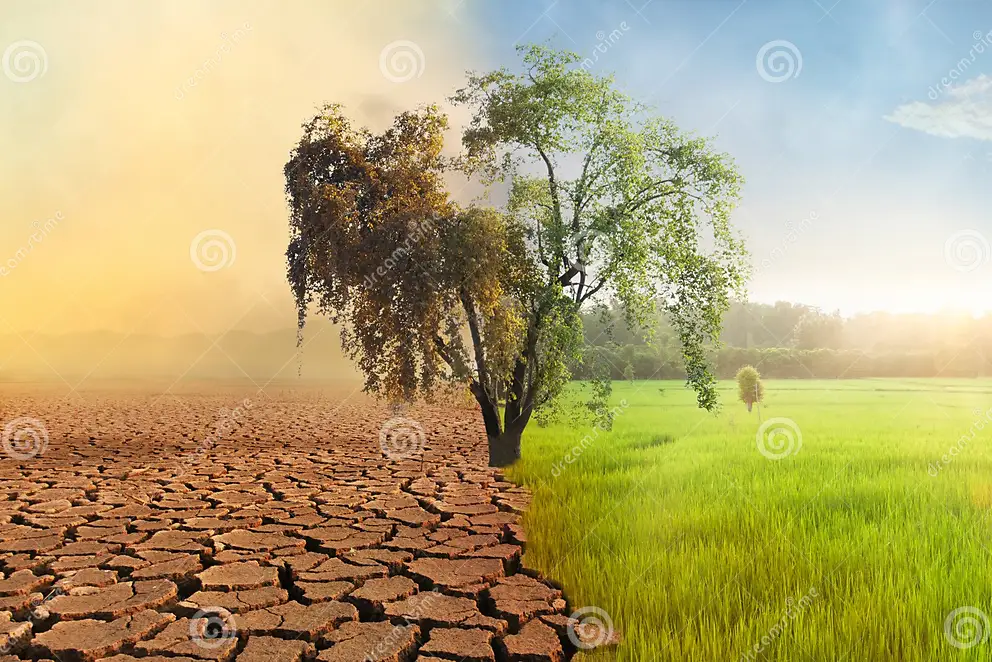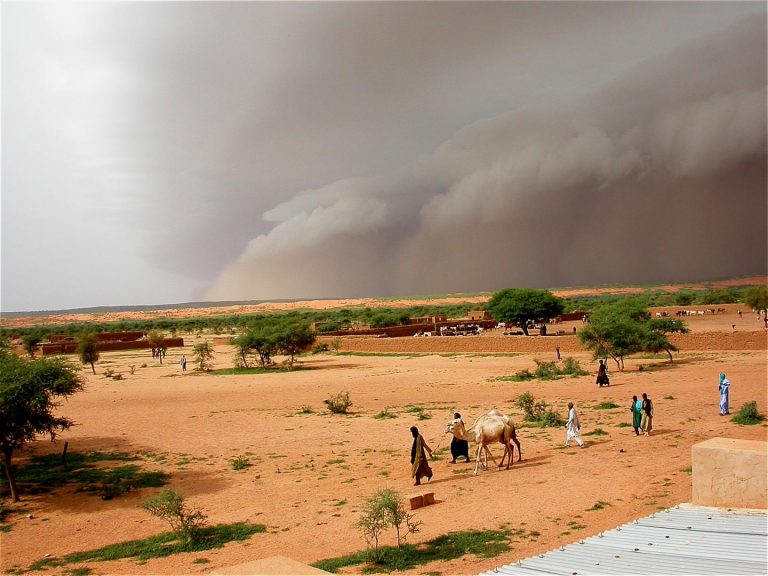Mohammed A.Abu
The exploitation and continuous exploitation of the natural resources of African and other countries associated with colonialism and at the expense of the environmental health in exploited countries has contributed immensely to the present day climate change impact in those countries, some climate justice activists, contend.
The use of extracted natural resources from the former colonies by former colonial masters for their industrialization, wealth creation and fast tracked development has led to the ever yawning global development/wealth-poverty gap.
Aside former colonies having been impoverished as a result of the exploitation of their natural resources, their people are also left to bear the brunt of the socio-ecological cost of wealth being made from their natural resources in exchange for a pittance.
Carbon emissions from the advanced world fueled by the global fossil fuel boom and industrialization in advance wealthy nations is the main driver of the climate change impact African and other exploited countries worldwide, are now being made to endure without any meaningful assistance from the polluters.
The former NASA scientist James Hansen has estimated that now rich advanced world countries were responsible for 77 percent of all carbon emissions between 1751 and 2006. The United States alone produced 28 percent of carbon dioxide emissions in that period. Other estimates reveal similar disparities: according to the German database PRIMAP-hist, developed countries were responsible for 68 percent of carbon dioxide emissions between 1850 and 2016.
It is therefore against this background that, we of the Eco-Enviro News Africa magazine finds the call made by African leaders within the context of the Nairobi Declaration on the major polluters and global financial institutions to take full responsibility by committing more resources to help poorer nations, the victims of their wealth making and major pollution, as being on point.
The Rich Get Richer and Poor Gets Poorer
The multinational mining and oil and gas corporates from the advanced world belong to the world’s richest one (1) percent who own half of global wealth. Some of them operate in extractive industries in Africa and other parts of the world, and are said to me making too much money from mineral rich African countries through illicit financial transfer(IFFs) while also, impoverishing their host countries and leaving their people to bear the brunt of the environmental mess they had created.
According to the Economic Development in Africa Report 2020 by the UN Conference on Trade and Development (UNCTAD), Africa loses about US$88.6 billion, 3.7 per cent of its gross domestic product (GDP), annually in illicit financial flows.
A “UNU WIDER research article published in 2019 said, Tax havens have become a defining feature of the global financial system. Multinational companies can use various schemes to avoid paying taxes in countries where they make vast revenues.An estimated US$420 billion in corporate profits is said to shifted out of 79 countries every year.
This equates to about US$125 billion in lost tax revenue for these countries. As a result, their state services are either underfunded or must be funded by other, often lower-income taxpayers. It contributes to rising inequality both within countries across the world.
According to cnbc.com, the world’s millionaires, richest 1 percent who own half of global wealth were expected to do the best in the coming years. There are now 36 million millionaires in the world, it says, and their numbers were expected to grow to 44 million by 2022.The U.S. still leads the world in millionaires, with 15.3 million people worth $1 million or more.
The Wealth-Poverty Gap
Yet commodity export dependent countries among developing countries suffering climate change impact are also losing as much as 67 per cent of their exports earnings, worth billions of dollars, due to trade misinvoicing, according to a new study by UNCTAD, which for the first time analyses this issue for specific countries and commodities.
This research provides new detail on the magnitude of this issue, made even worse by the fact that some developing countries depend on just a handful of commodities for their health and education budgets,” UNCTAD Secretary-General Mukhisa Kituyi said.
Africa’s Climate Change Impact Snapshot
The International Federation of the Red Cross and Crescent Societies reports that in September 2020 alone, torrential rainfall, river floods, and flash floods affected 192,594 people across 22 states in Nigeria (including 826 injuries, 155 fatalities, and 24,134 displacements).
An estimated 27 to 53 million people in Nigeria ,the report said,might have to relocate with an (0.5 m) increase in the sea level. Sea level rise is threatening other low-lying countries in Africa, with research suggesting that cities like Abidjan, Cape Town, and Dar es Salaam will be totally submerged with (1.0 m) global sea level rise. At the same time, oil and diamond-mine infrastructure in coastal African countries worth trillions of dollars are very susceptible to sea level rise and coastal erosion.
Climate change is also causing a decrease in productivity of many staple food crops in Africa. About 86 per cent of Africa’s agriculture is rain-fed, implying that even moderate variations in rainfall, temperature and precipitation patterns could have immediate impact on agricultural production.
Under this unjust world economic and financial order,at which Africa and others have always been at the receiving end,African governments aren’t sitting down arms folded and asking for handouts from the rest of the world, but she is doing her bit under the given circumstances. African governments have demonstrated willingness to take strong action on climate change but the world’s most wealthiest minority ought must do the needful now in order to complement their efforts.
Climate Actions in Africa
Nigeria has recently submitted a revised Nationally Determined Contributions that promises 20 per cent Green House Gas emission reduction by 2030. Several other countries like the Gambia, Congo, Malawi, Namibia and Liberia have also submitted revised NDCs.
Nigeria has raised $60+ million in green bonds; the country has also strengthened its 2030 emission targets with specificity on addressing emissions reductions from the waste sectors and increasing conditional contributions. Malawi and South Africa have developed a fund to finance green growth projects, while Rwanda has created its $11 billion, 10-year Climate Plan, among others.
To this end, we of the Eco-Enviro News, Africa magazine,wish to state that, the call on the polluters to do more should also be directed categorically at the multinationals engaged in Africa’s extractive industries as the have the money.
We also support Mohammed Adow’s expert opinion that the most straightforward way that developed nations can address that inequity is through financial transfers and technological support to developing nations.
In his feature under the title. “The Climate Debt what the West Owe the Rest “published in Foreign Affairs in 2020, Mr. Adow notes that, as part of negotiations under the aegis of the UN Framework Convention on Climate Change (UNFCCC), wealthy countries have agreed in principle to provide $100 billion a year by 2020 to assist their poor counterparts.
The amount he also notes, is hardly enough to help developing nations adjust to the effects of climate change, receive compensation for loss and damage as a result of extreme weather, and transition to low-carbon economies.
“Even that funding has not fully materialized, and its lack of implementation suggests a continuing imbalance between the rich and the rest”, he intimated










